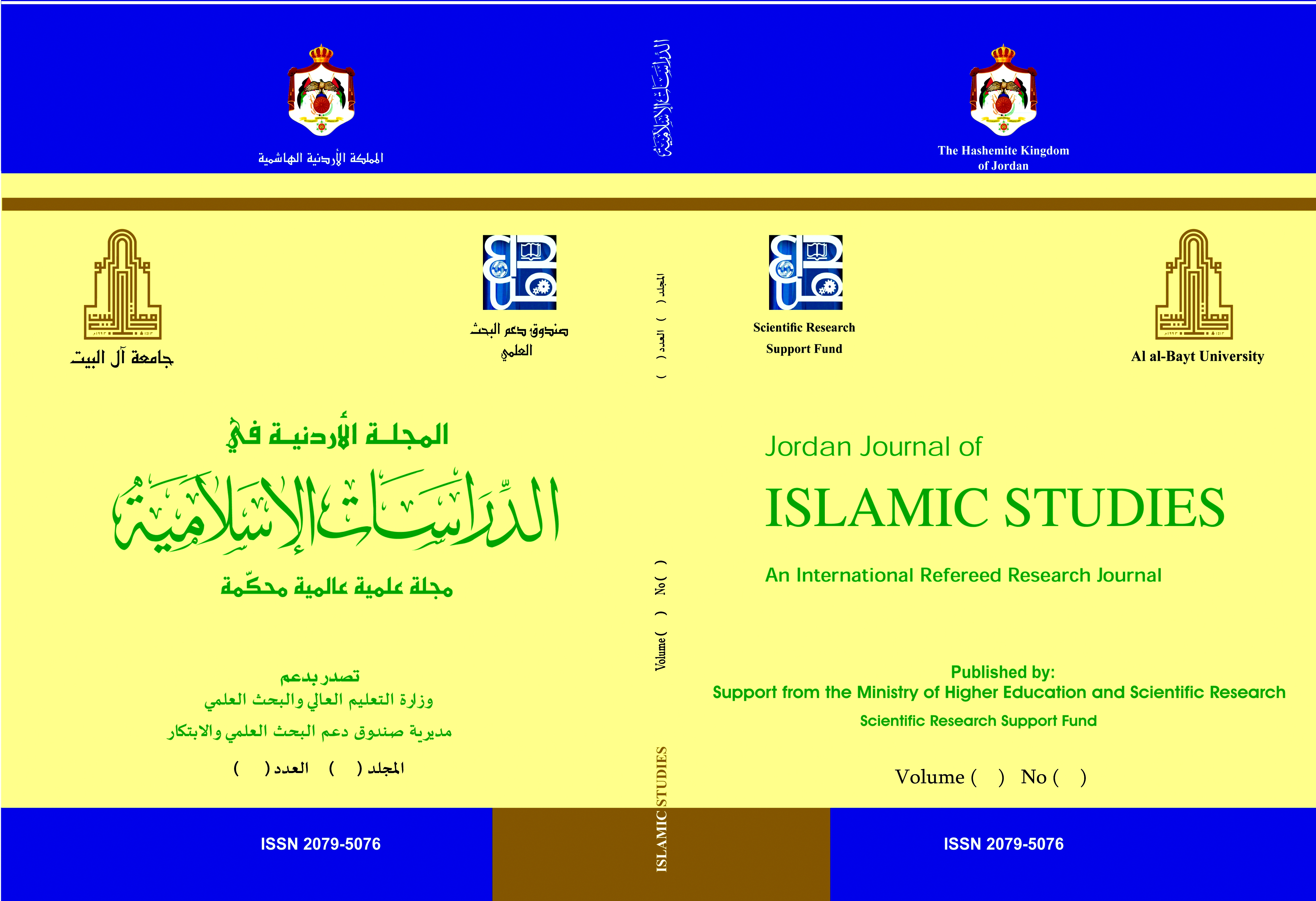Jordan Journal of Islamic Studies

Abstract
ملخص
هدفت هذه الدراسة إلى بيان مفهوم الاقتصاد السلوكي وعلاقته بعلم النفس والاجتماع وغيرها من العلوم وتوضيح أهم الجوانب النظرية والعملية له في إطار السياسات العامة للدول، وعلافته بالاقتصاد الإسلامي، وسبل استفادة المؤسسات المالية الإسلامية من الاقتصاد السلوكي؛ إذ يعد اليوم واحدًا من أكثر المدارس الاقتصادية الحديثة تأثيرًا في مجال الاقتصاد وصنع السياسات العامة سعيًا نحو تحقيق التنمية المحلية، ومن المتوقع أن يسهم الاقتصاد السلوكي بفاعلية في الاقتصاد والتمويل الإسلامي.
وتضمنت الدراسة مبحثين، الأول: خاص بالجانب النظري للاقتصاد السلوكي من حيث المفهوم والنشأة وعلاقته مع العلوم الأخرى، والمبحث الثاني: خاص بالجانب التطبيقي من حيث التطبيقات الدولية للاقتصاد السلوكي في مجال السياسات العامة، إضافة إلى وجهة نظر الاقتصاد الإسلامي في جوانب الاقتصاد السلوكي، وأهم المداخل والتطبيقات الاقتصادية الإسلامية لهذا العلم خاصة في مجال المؤسسات المالية الإسلامية.
وقد توصلت الدراسة، إلى أن مجال الاقتصاد السلوكي خصب لاستفادة المؤسسات المالية الإسلامية بشكل عام، ومن ذلك: إعادة توجيه سلوك المتعاملين المصرفي، ودخول الأفراد جميعهم في خدمات المصارف الإسلامية (الشمول المالي) والتمويل السلوكي. وأوصت الدراسة، بضرورة نشر الوعي المجتمعي بأهمية الوكز السلوكي في تحسين مستوى معيشتهم، وحل مشاكل الدولة الاقتصادية عبر وسائل الإعلام والمؤتمرات والورش والجهود البحثية، وأوصت كذلك بضرورة الاستفادة من التجارب الدولية في الوكز السلوكي، وإجراء المزيد من الدراسات حول الاقتصاد السلوكي وإمكانية تعميمه على المؤسسات المالية الإسلامية.
الكلمات المفتاحية: الاقتصاد السلوكي، الوكز، التمويل الإسلامي، التمويل السلوكي.
Behavioral economics between theory and practice
Islamic Economic Estimation
Abstract
This study aimes to explain the concept of behavioral economics and its relationship to psychology, sociology and other sciences and to clarify the most important theoretical and practical aspects of it within the framework of public policies of countries, and its relationship to Islamic economics, and ways for Islamic financial institutions to benefit from behavioral economics, as today it is one of the most influential modern economic schools In the field of economics and public policy making in pursuit of local development,
behavioral economics is expected to contribute effectively to Islamic economics and finance.
The study included two studies, the first is on the theoretical side of behavioral economics in terms of concept, origins and its relationship with other sciences, and the second topic is on the applied side in terms of international applications of behavioral economics in the field of public policies, in addition to the view of Islamic economics in aspects of behavioral economics, and the most important approaches and economic applications Islamic finance for this science, especially in the field of Islamic financial institutions.
The study concluded that the field of behavioral economics is fertile for the benefit of Islamic financial institutions in general, including: reorienting the behavior of banking customers, and the entry of all individuals into Islamic banking services (financial inclusion) and behavioral financing. The study recommended the necessity of spreading societal awareness of the importance of behavioral nudges in improving their standard of living, and solving the country's economic problems through the media, conferences, workshops and research efforts, and also recommended the need to benefit from international experiences in behavioral nudges, conduct more studies on behavioral economics and the possibility of generalizing it to financial institutions Islamic.
Key words: behavioral economics, nudges, Islamic finance, behavioral finance.
Recommended Citation
Al Douiri, Zayed Nawaf and Obada, Ibrahim
(2021)
"Behavioral economics between theory and practice Islamic Economic Estimation الاقتصاد السلوكي بين النظرية والتطبيق تقدير اقتصادي إسلامي,"
Jordan Journal of Islamic Studies: Vol. 17:
Iss.
2, Article 13.
Available at:
https://digitalcommons.aaru.edu.jo/jois/vol17/iss2/13

